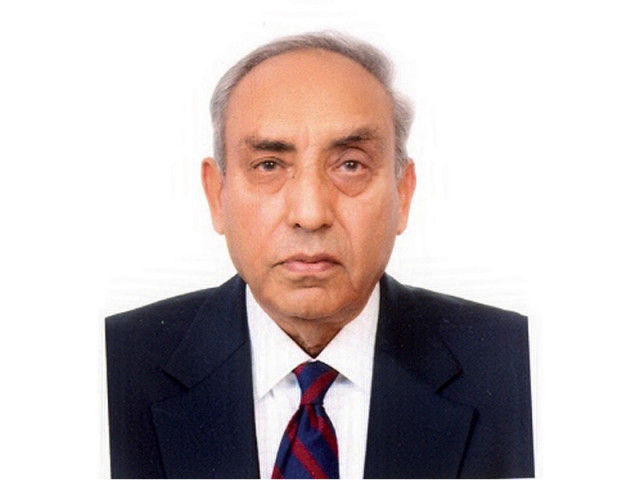Politics in Pakistan: ‘Ethno-nationalism can become disastrous, if not taken seriously’
Ethnicity is a consciousness of common ancestry, culture, language and religion.

Politics in Pakistan: ‘Ethno-nationalism can become disastrous, if not taken seriously’
On Thursday, the University of Karachi (KU) was deserted. One of the keynote speakers at an event on the rise of ethno-nationalistic politics kept glancing at his watch nervously.
It looked as if Prof. Dr Pervaiz Iqbal Cheema, who had flown in from Islamabad, was afraid that something might deter him from catching his flight back home. The outbreak of violence in the city in the last couple of days seemed to have made everyone anxious and even more cautious.
The volatility of ethnic politics in Pakistan was made all the more evident by the reluctance to discuss it at the event organised by the Area Study Centre for Europe (ASCE) and The Hanns Seidel Foundation.
In his introduction, ASCE president Moonis Ahmar said that ethno-nationalism was considered to be a double-edged sword. “If not dealt with properly it can prove to be disastrous,” he said. “But if it is used to your advantage then it can be the positive driving force for a country or region.”
He quoted a statement made by Prof. Cheema at an earlier lecture, that nationalism was not bad at all. But it was the ferocious ‘regionalism’ that was dangerous.
While speaking about Europe, he said that the region had a lot of experience in ethno-nationalistic movements and had lost a lot of lives over it. “After World War II, they realised that it was meaningless and settled down to use multiculturalism to their advantage,” said Ahmar.
Prof. Cheema, who is a dean at the National Defence University in Islamabad, read a paper on the conceptual foundation of ethno-nationalism and its impact on world politics. He defined ethnicity as consciousness of common ancestry, culture, language and sometimes religion in a group of people. However, the professor claimed that when people become politically motivated and want to be defined along cultural or religious lines then they could also be categorised as nationalists. He gave the examples of Sri Lanka and the Seraiki and Hazara movements in Pakistan.
He said that America was a multi-ethnic society but he pointed out the way in which it amalgamated people. The people were still identified by their race – African-American, Chinese-American, Mexican-American and so on. The ‘American’ suffix was added to their ethnic descent.
Dr Jaffar Ahmed, the director of Pakistan Study Centre at KU, read a paper on the multi-ethnic and multi-religious composition of India and its implications on democracy. He said that India was a federation, albeit with powerful centre. But what it lacked in its federation system, it made up for it by its consistent democracy.
The moderator of the first session, Lt. Gen. (Retd) Moinuddin Haider surprised the guest speakers by talking about the situation in Karachi. He said that although the Mohajir Qaumi Movement had become the Muttahida Qaumi Movement, its ethnic nature had remained the same. As Prof. Cheema and Dr Jaffar gave the lieutenant worried looks, he said that the Pashto-speaking people had also migrated to Karachi. He added that since they had worked and settled down in the city, they also had a claim on the extortion money. The lieutenant gave examples of Qatar, Germany, Malaysia and the United Kingdom, countries which had developed with the help of other ethnic communities who had migrated there.
Journalist Ghazi Salahuddin highlighted that the identity could not be pinned down to one factor - religion, ethnicity, nation or creed. He said that one identity often superseded the other because of a common goal or a cause but it never dissolves completely or goes away. For Salahuddin, the solution is to live together while accepting that everyone had similar yet different identities.
Published in The Express Tribune, March 30th, 2012.



















COMMENTS
Comments are moderated and generally will be posted if they are on-topic and not abusive.
For more information, please see our Comments FAQ